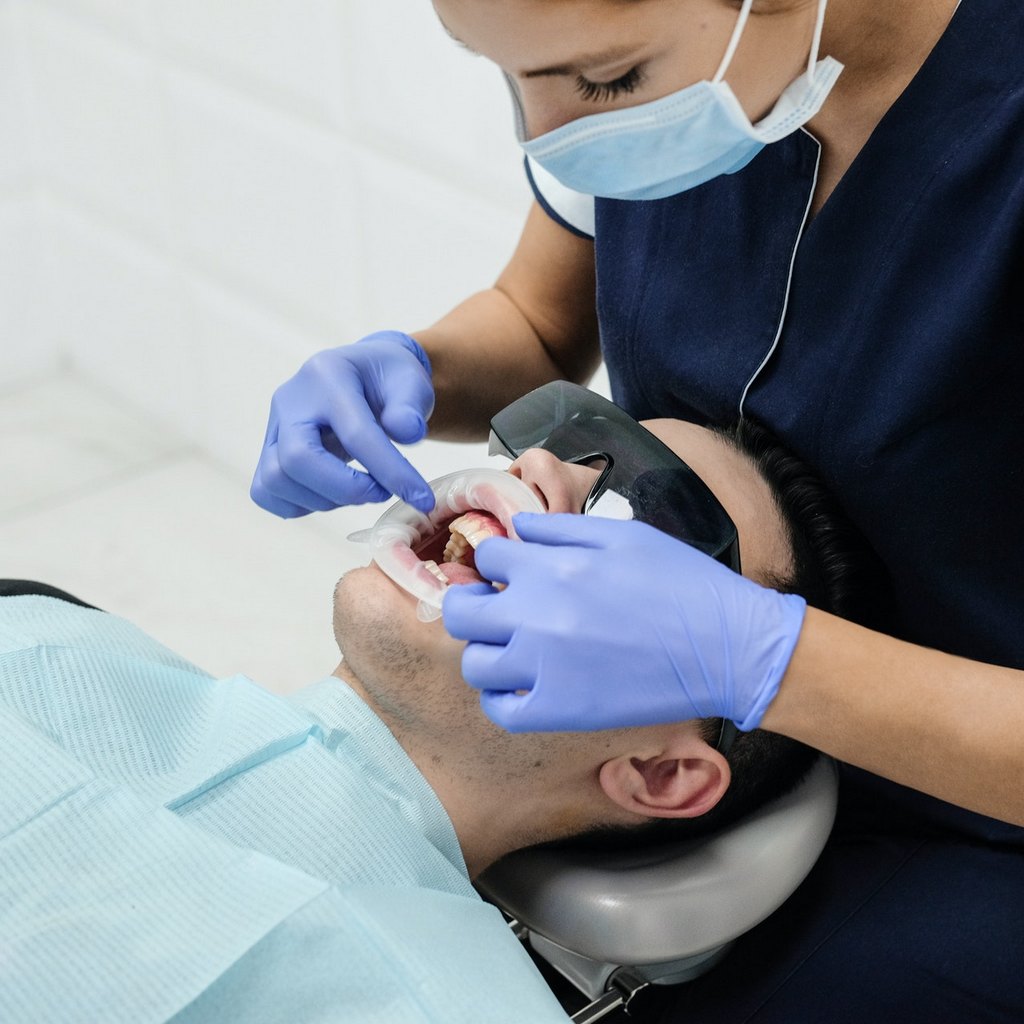AI in Dental Diagnostics
AI’s impact on dental diagnostics is profound. One of the most significant applications is in the analysis of dental imaging. AI algorithms can analyze X-rays, CT scans, and 3D imaging with a level of precision and speed unattainable by human eyes. This technology not only detects common dental issues such as cavities and gum disease but is also increasingly proficient in identifying early signs of more complex conditions like oral cancer and temporomandibular joint disorders.
For instance, AI software can differentiate between benign and malignant lesions with a high degree of accuracy. This early detection is crucial as it can lead to earlier interventions, which often result in better patient outcomes. Moreover, AI can track minute changes in a patient’s dental scans over time, providing a comprehensive view that aids in predicting future dental issues before they become severe.
Enhancing Treatment Planning
AI’s role extends beyond diagnostics into treatment planning. In orthodontics, AI algorithms can predict tooth movement and help in designing personalized treatment plans. This is done by simulating different scenarios and predicting outcomes, thus allowing orthodontists to choose the most effective treatment strategy.
In restorative dentistry, AI assists in the design and manufacturing of dental crowns, bridges, and implants. CAD/CAM (Computer-Aided Design/Computer-Aided Manufacturing) technology integrated with AI enhances the accuracy and efficiency of these processes, reducing the time from dental impression to final product installation. This integration not only speeds up the procedure but also improves the fit and longevity of dental prosthetics.
Automating Routine Tasks
AI is also automating routine tasks in dental practices, such as scheduling appointments, patient data entry, and management of patient records. This automation reduces administrative workload, allowing dental professionals to focus more on patient care rather than paperwork. Additionally, AI-driven chatbots can provide patients with instant responses to common inquiries, improving communication and patient satisfaction.
Personalized Patient Care
AI contributes to personalized dental care by analyzing vast amounts of data to identify patterns that human dentists might overlook. For example, by analyzing a patient’s historical health data, genetic information, and lifestyle choices, AI can help dentists create highly customized treatment plans. This level of personalization not only optimizes treatment effectiveness but also enhances preventive care strategies.
Challenges and Ethical Considerations
Despite its benefits, the integration of AI in dentistry is not without challenges. One major concern is data security. Patient dental records are highly sensitive, and storing this data in AI systems increases the risk of breaches. Ensuring robust cybersecurity measures is essential to protect patient information.
Another challenge is the ethical implications of AI in medical decision-making. Dependence on AI could potentially de-skill some practitioners, leading to a scenario where skills may degrade because machines are making the critical decisions. Additionally, there is the question of liability in cases of misdiagnosis or treatment failure when AI systems are involved.
The Future of AI in Dentistry
Looking ahead, the future of AI in dentistry appears promising. Continuous advancements in AI technology are expected to further refine diagnostic tools and treatment planning. Moreover, as AI becomes more integrated into healthcare, interdisciplinary approaches could emerge, linking dental health with broader medical conditions, thus providing a more holistic approach to healthcare.
Moreover, ongoing research and development are geared towards making AI tools more accessible and affordable, which could democratize advanced dental care, making it available to a wider population.
Conclusion
AI is setting the stage for a revolution in dentistry, offering possibilities that were unimaginable a few decades ago. From enhancing diagnostic accuracy to streamlining operations and personalizing patient care, AI holds the potential to transform every aspect of dental practice. While challenges remain, particularly in the realms of data security and ethical considerations, the proactive management of these issues combined with strategic implementation of AI can lead to significant improvements in dental care quality, efficiency, and accessibility. As we stand on the brink of this new era, the dental profession must embrace AI, not as a replacement for the human touch, but as a powerful ally that enhances the dentist’s ability to heal.








